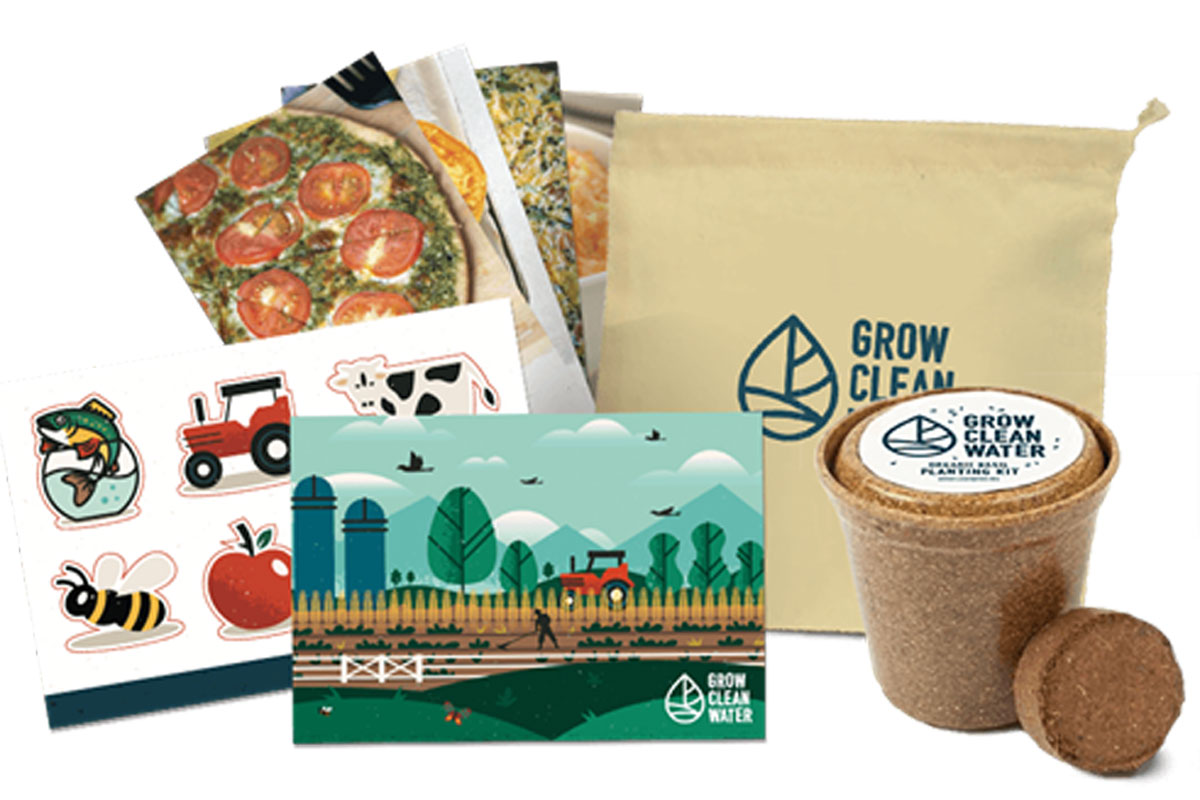
How a pledge to “Grow Clean Water” & support healthy farms can help the Delaware Watershed
Agriculture makes up roughly 25 percent of the Delaware Watershed’s land cover.
You may not be a farmer, but you can still influence how local agriculture impacts our local drinking water, according to a Pennsylvania nonprofit.
The Rodale Insititute in December launched its Grown Clean Water campaign to educate Philadelphia families on how their food choices can have a positive “ripple effect” that leads to fewer pesticides in local streams and rivers.
Grow Clean Water, which is funded by the William Penn Foundation, is reinforcing the connection between healthy farming practices (like reduced tillage, crop rotation, and forgoing the use of pesticides, fertilizers, and other chemicals) and the health of the watershed.
When fertilizers or other chemicals are used on area farms, they can also end up in the Delaware Watershed, which is the source of water for 15 million people. Rainfall, melted snow, and irrigation leads to agricultural runoff, which is the excess water the land can’t absorb that instead flows into nearby waterways.
A multi-step treatment process is used to ensure the water is drinkable, but in some parts of the U.S., like Toledo, Ohio, the toxins can overwhelm treatment plants, leading to restrictions on tap water and recreation in Lake Erie.
The agricultural runoff can cause other environmental issues too. For instance, the NOAA reported last August the Gulf of Mexico had an aquatic dead zone bigger than the state of Connecticut that was fueled by excess nutrients from cities and farms in upland watersheds.
Water from the Delaware River Basin is safe to drink, though Kutztown, Pa.-based Rodale says “erosion, pesticides, and fertilizers from farm fields are its largest pollutant.”
To reduce use of these chemicals on area farmlands, Rodale is encouraging consumers to learn more about farming and look for the “Certified Organic” label. Products with that USDA certification are grown without the use of hundreds of unhealthy chemicals.
“We want to arm people with information so they can make changes at home that ultimately have a ripple effect across all of agriculture and our food system,” said Diana Martin of Rodale Institute.
As part of Grow Clean Water, the nonprofit is asking Philadelphians to “take the pledge” to help keep our water clean. Once a family signs the online pledge, Rodale will send a free kid-friendly package that includes an organic herb growing kit.
Lead support is provided by the William Penn Foundation.









